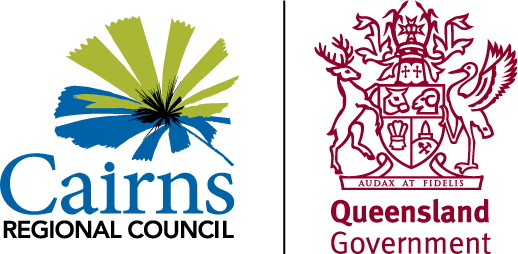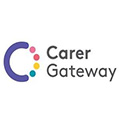Assessment and Referral Team (ART)
(ART) provides an intensive case management approach to support eligible children and young people to access the National Disability Insurance Scheme (NDIS). ART can help you throughout the entire access process from start to finish by:
- Filling out application forms, preparing and collecting documentation and, where required, arranging specialised assessments
- Liaising with doctors and specialists to gather information and evidence
- Submitting your completed application to the NDIS and tracking its progress until you receive an outcome.
More info https://queenslandcommunities.engagementhub.com.au/art
Queensland Community Support Scheme
(QCSS) provides low intensity supports to assist you to live independently, increase connections and participate in your local community, thereby reducing social isolation.
More info https://www.qld.gov.au/community/getting-support-health-social-issue/community-home-care-services/queensland-community-support-scheme
Education programs to provide financial support for students and their families
- Assistance for Isolated Children Scheme
‘A group of payments for parents and carers of children who can’t go to a local state school. This could be because of geographical isolation, disability or special needs’. Information included on the page covers the following areas : Who can get it; What payment you can get and how much; How to claim; and How to manage your payment [options and obligations]. - Financial help – Aboriginal and Torres Strait Islander peoples
‘Financial help is available for high school students to complete their senior studies and for students who are studying at TAFE or university. Aspects include : ABSTUDY; Assistance for Isolated Children Scheme; Indigenous Youth Mobility Programme; New ! StudyAssist; and Other financial help while studying at school’. - Grants and Appropriations
‘Each of the profiles of the appropriations and allowances shows purpose, eligibility, calculation, payment processes and data requirements’. See below for some of these. - Investing for Success
‘Duration of program runs from 2015–2025. State schools are expected to use funding to support students in achieving improved outcomes across all levels of schooling’. - Living Away from Home Allowance
‘The Living Away From Home Allowances Scheme [LAFHAS] supports eligible Queensland families whose children need to live away from home to attend a state school or an accredited non-state school. What support is available; Eligibility; Remote Area Disability Supplement [RADS] eligibility; Payment details; LAFHAS Rates list; How to apply; Related links; and Contact Details’. - School Transport
Department of Transport and Main Roads. School Transport Assistance Scheme, statements, Code of Conduct, behaviour, even bus replacement options. Also check the School Tickets and Fares site at TRANSLink. Enquiries about school transport assistance for students with disability should be made with the school attended. - State Schools Resourcing Framework
‘The State Schools Resourcing Framework [SSRF] guide [PDF, 936KB] provides a concise explanation of Queensland state school resourcing arrangements and the New ! Grant and Appropriation Profiles show what funding the department may pay directly to state schools’. - Student Hostels Assistance
‘The Department of Education provides recurrent and capital assistance to eligible non-profit organisations providing hostel accommodation in rural areas to accommodate geographically isolated primary and secondary students [including students with disabilities] so they may have daily access to schools’. - Targeted Funding
‘Targeted funds are allocated to certain schools in recognition that, to achieve desired educational outcomes or to provide appropriate educational experiences, these schools require enhanced funding levels’. - Textbook and Resource Allowance
‘The Department provides assistance to parents of secondary school age students attending state and approved non-state schools to contribute towards the cost of textbooks and learning resources’. - Youth Allowance [Services Australia]
‘Financial help if you’re 24 or younger and a student or Australian Apprentice, or 21 or younger and looking for work’.
https://www.aussieeducator.org.au/education/support.html?#QLDB
Local Council Grants

RADF Flame.Arts Access – Leg Up Grants – Up to $1,500 opportunity for people with a disability.
The Flame.Arts Access Program aims to create pathways to practice, career development and employment opportunities for artists who are often under-represented.
Flame.Arts Access – Leg Up Grants offer small grants of up to $1000 for Young People and Aboriginal and Torres Strait Islander People and up to $1500 for people with disability to develop projects of an arts and cultural nature within our region, or further afield (or for individuals and organisations developing projects that specifically benefit one or more of the above groups).
More info – https://www.cairns.qld.gov.au/online/apply/grants/radf-flame-leg-up
The Services Australia Payment Finder located on their website can help you locate a range of benefits that you may be eligible for,

including Family Tax Benefit, Child Care Benefit, Child Care Rebate, Parent Payment, as well as some or all of the following:
Carer Allowance
A fortnightly supplementary payment for carers who provide additional daily care and attention for someone with a disability. Not means-tested.
Carer Payment
A fortnightly, assets and means-tested income support payment for people who provide constant care for their child with severe disability and are unable to work as a result.
Disability Support Pension
Financial help if you have a physical, intellectual or psychiatric condition.
Assistance for Isolated Children Scheme (AIC)
Payment made each term for students who cannot go to an appropriate state school because of geographical isolation, disability or special health needs.
Annual Payments – Carer Supplement
This is an annual lump-sum payment to assist carers with the costs of caring for a person with a disability. To be eligible for the payment you must be receiving the Carer Allowance or the Carer Payment as of the 1 July each year.
The payment is approximately $600 and you do not need to apply for it. You will automatically receive it if you are eligible however it’s always a good idea to check with Centrelink.
Annual Payments – Child Disability Assistance Payment
This is an automatic yearly payment if you are receiving the Carer Allowance for looking after a child with a disability or serious illness as of the 1 July each year.
The payment is $1000 for each eligible child who qualifies for the Carer Allowance. If you are getting Carer Allowance for 2 children, you will get 2 payments.
If you share the care for a child and get a part rate of Carer Allowance, you will get a part payment of the Child Disability Assistance Payment in the same ratio.
Health Care Card
A Health Care Card is automatically issued for your child when you receive the Carer Allowance.
It entitles your child to concession rates for prescription medicines and other concessions, such as discounted public transport for some cardholders, bulk billing by selected doctors and higher refunds through the Medicare Safety Net.
Carer Adjustment Payment
A one-off payment of up to $10,000 following a catastrophic event when a child under seven years of age is diagnosed with a severe illness, medical condition or major disability. You have two years following diagnosis in which to apply.
To get this payment:
-you must provide care full time for a child under 7 who has a:
*severe illness,
*severe medical condition, or
*major disability
-you must get Carer Allowance for the child
-you must have a very strong need for financial help
-the child must need this care for at least 2 months
-the child must have the severe illness, medical condition or major disability because of a catastrophic event
-you and your partner can’t be getting Carer Payment or be able to get another income
support payment from Centrelink
Pensioner Education Supplement
A small subsidy payment for secondary and tertiary part-time and full-time students who are already receiving a benefit or payment.
Inclusion Support Programme (ISP)
The ISP assists early childhood and child care (ECCC) services to include children with additional needs by providing tailored inclusion advice and support from contracted inclusion agencies, as well as funding to support more challenging inclusion barriers.
Payments for people over 16 years of age
Once young people are over 16 years of age there are other funding supports available, such as the Disability Support Pension, Youth Allowance, Youth Disability Supplement and more.
Other Funding Sources
Home Schooling Info And Assistance
Help for students who cannot go to an appropriate state school because of geographical isolation, disability or special health needs.
Variety QLD
Provides grants for practical equipment, resources and experiences for children who are disadvantaged or have special needs.
At Home Care Grants
Youngcare’s At Home Care Grants program is critical in keeping young people at home with their families, and preventing new admissions to inappropriate housing. They provide funding for equipment, home modifications and essential support/respite that is unable to be funded through other means (eg. NDIS). This funding is to both enhance the quality of life for young people with high physical care needs and assist them to remain living in their own home with loved ones. The grants provide one-off funding of up to $10,000 to help those aged 16-65 with high physical care needs who are living at home, and are at risk of entering inappropriate housing.
The Smith Family
Their Learning for Life program provides emotional, practical and financial support to help disadvantaged children and young people with their education. Support starts in the early years of learning development and continues through primary and high school. Talk to your schools guidance officer to apply for the program.
Apply for a Sports Voucher (Qld) Fairplay
Eligible children and young people are provided with a voucher of up to $150 to help pay for club membership and/or participation fees. The vouchers can be redeemed at a sport or recreation club registered with the program.
Financial Assistance
A range of payments and services supporting people in need, including people with disabilities. Includes info and links to No interest loan scheme, concessions, rent or mortgage assistance, support from charities. (Qld Gov)
School Transport Assistance
Do you drive your kids to school in your private vehicle? Live 3.2km or more away, 2 x payments, minimum $410 a year.
The School Transport Assistance Program for Students with Disabilities is a program administered by the Department of Education and Training.
The Non State Schools Transport Assistance Scheme is administered by the Queensland Catholic Education Commission on behalf of all non-state schools in Queensland.
Medical Aids Subsidy Scheme (MASS) and Continence Aids Payment Scheme (CAPS)
If you are not eligible for NDIS you may be eligible through MASS and.or CAPS. Helps people aged 5 years or more who have permanent and severe incontinence to meet some of the costs of incontinence products as well as prescribing medical aids and equipment
Carer Gateway – Tailored support packages
You may be able to get a range of practical supports like planned respite and transport services to help you in your caring role. Two packages available, one for $3,000 for supports like respite, course training, cleaning and the other for $1,500 to make your life as a carer easier.

How do I access Carer Gateway services?
You can access Carer Gateway services in a number of ways, including by phone and online.
By calling 1800 422 737 Monday to Friday between 8am and 5pm and selecting option 1, you can speak with your local Carer Gateway service provider. They will talk you through the registration process and start the planning process. This process helps our staff learn more about you and your caring role so they can match services to your individual needs.
